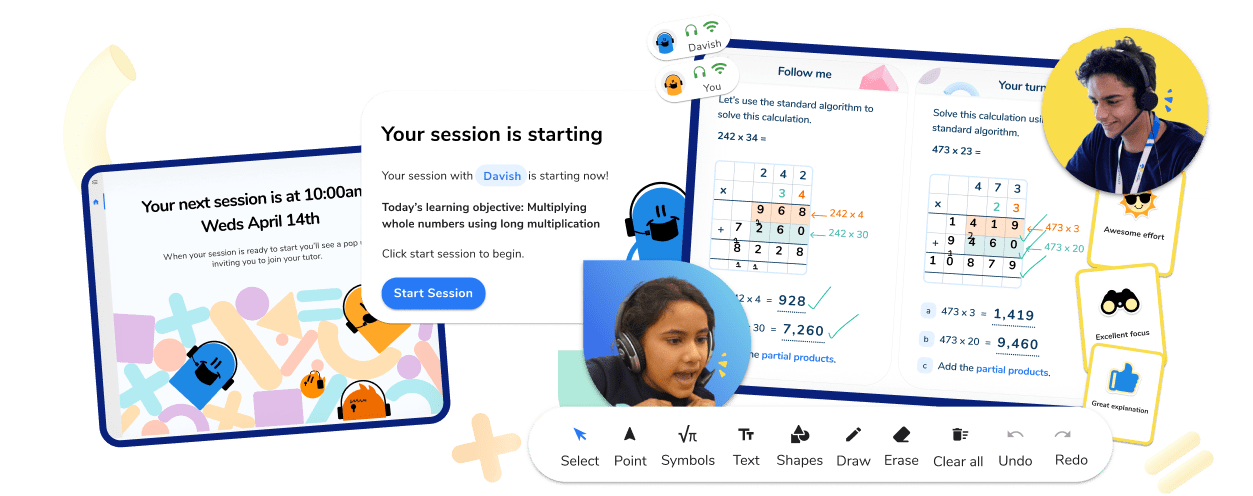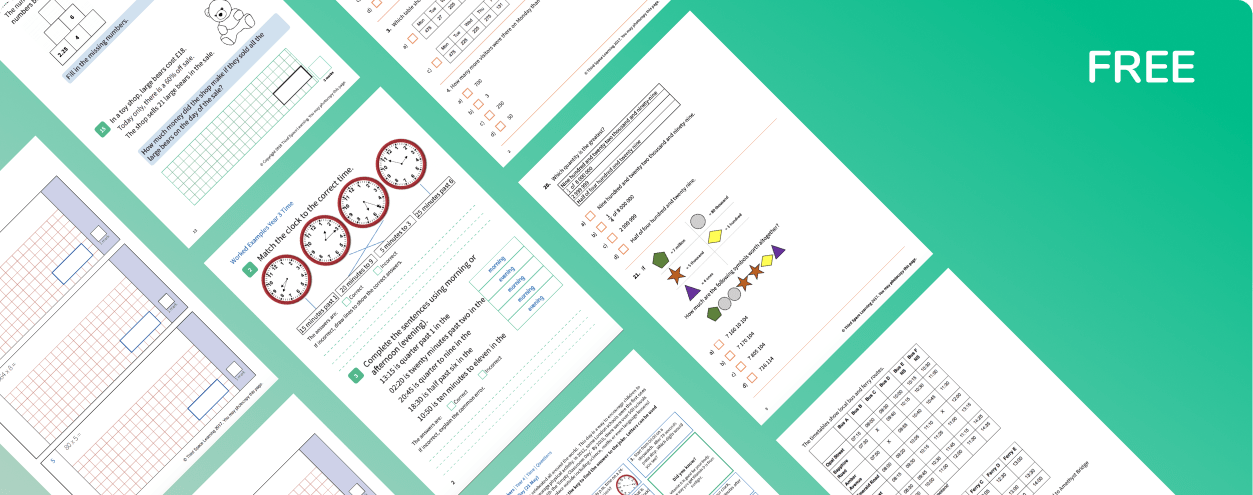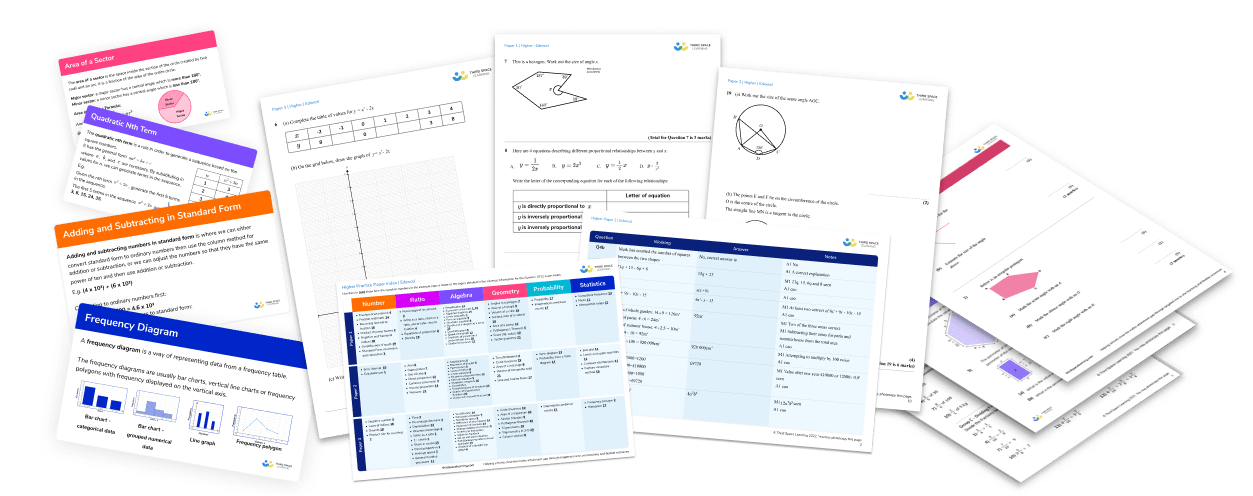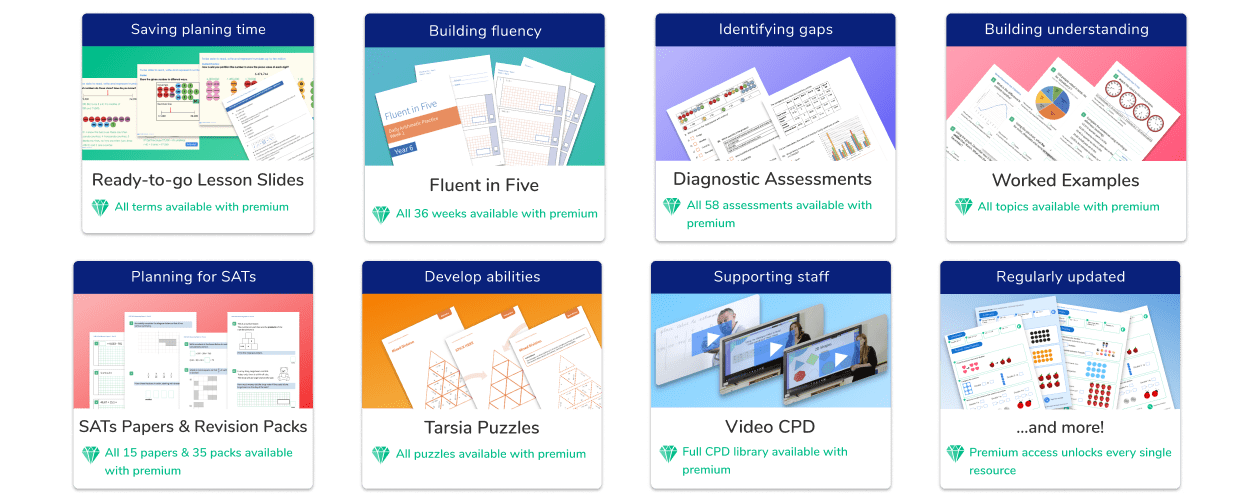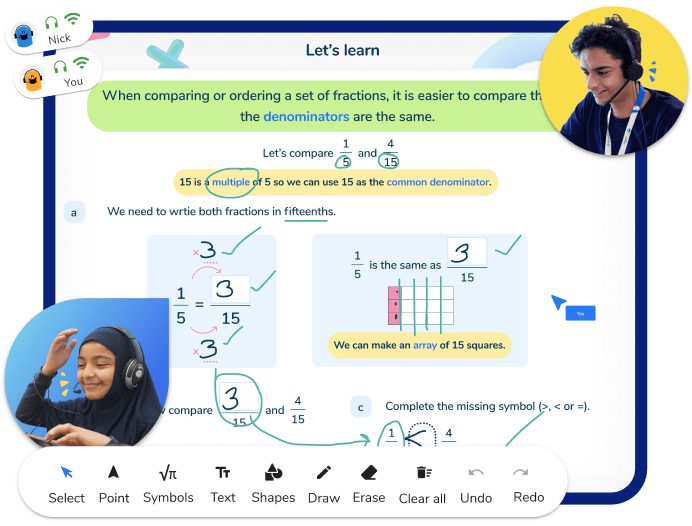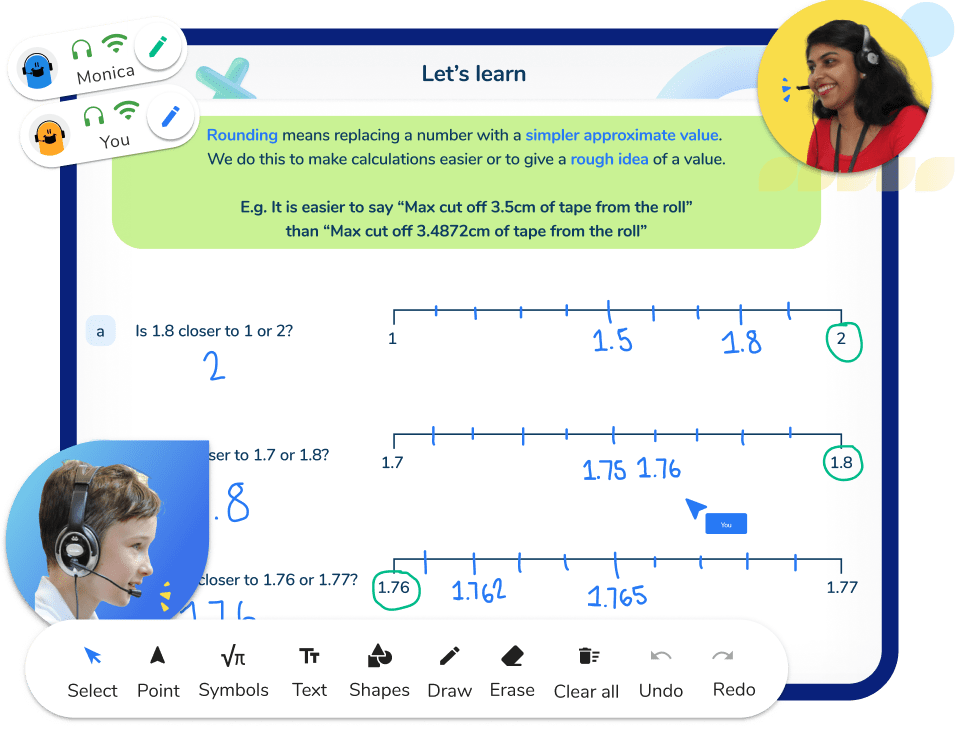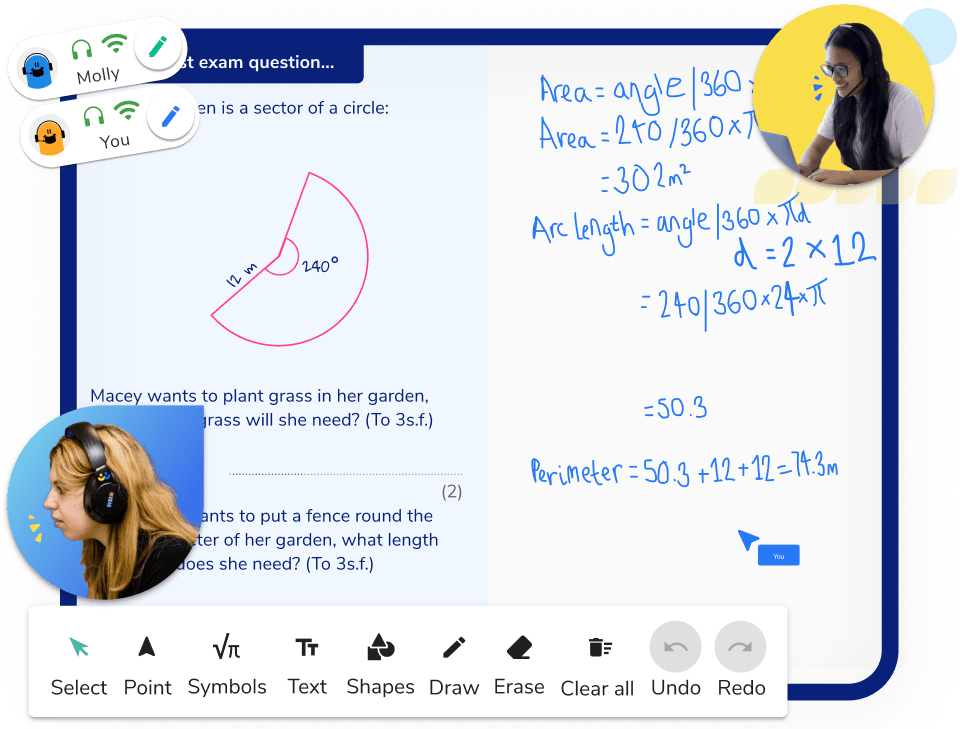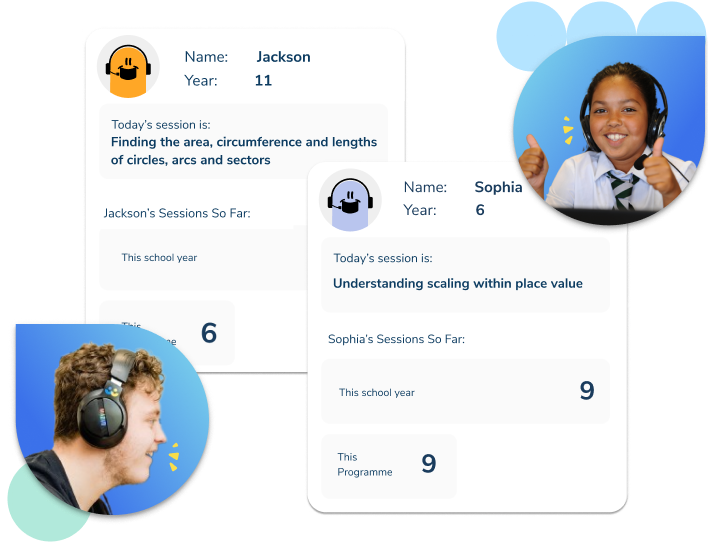
Reach more pupils at once
You choose which pupils need support; we’ll provide a dedicated specialist maths tutor and a personalised learning journey for each one
"This provides the opportunity for a large number of children to engage in a bespoke maths intervention at the same time - with personalised objectives so everyone is at the right level."
Jane Powell, Assistant Head, Barton Seagrave Primary School
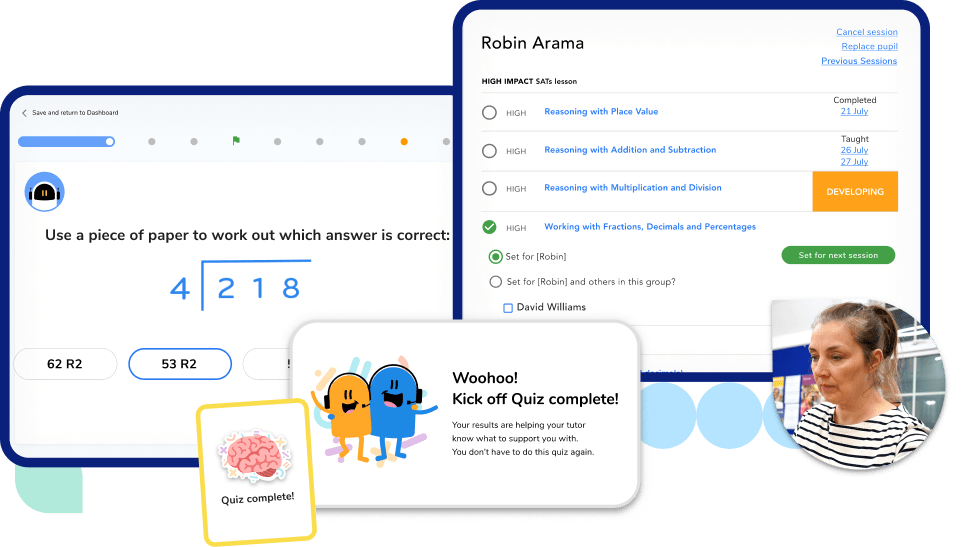
Address individual gaps
Tutoring content, pitch and pace is fully personalised following diagnostic and in-session assessments, meaning you can plug individual gaps across cohorts.
"No matter how much of a good teacher you are, you can never get to 30 children and do 30 different pieces of work and that is what is needed. It's the best type of intervention you can have"
Angela Kershaw, Maths Leader, St Augustine's Academy
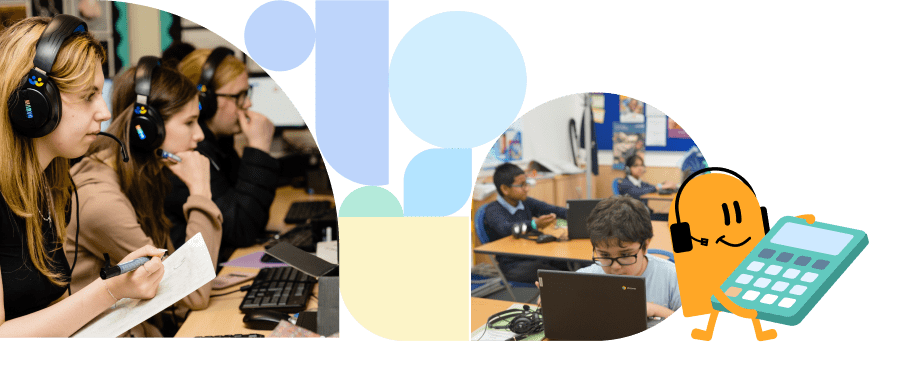
Maximise school funding
We’re proud to be the most affordable DfE-approved one to one tutoring provider, with subsidised tutoring available through the National Tutoring Programme
“It’s just as effective as bringing in a one to one tutor but it’s so much cheaper, so you can afford to have more children doing it.”
Clare Sealy, Headteacher, St Matthias Primary School, London

Free up staff time
Schools have a reliable, consistent and easy-to-run intervention for their target groups, giving class teachers more time to focus on whole class teaching
"It's organised and just happens for the children each week. They look forward to it. It makes personalisation nice and easy - for a change!"
Judy Coles, Headteacher, Hague Primary School
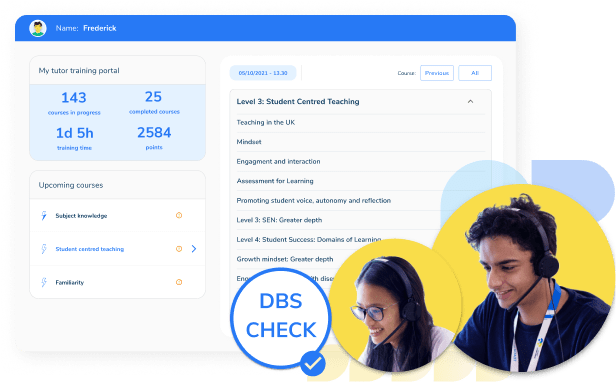
Save on staff training
All programmes are built by former maths teachers and pedagogy experts; all tutors are STEM specialists who complete intensive initial and ongoing maths tutor training
"It’s such a fantastic, well-researched programme. It’s had a huge impact on our pupils’ maths learning. The tutors really build pupils' metacognition."
Simrat Mavi, Deputy Head, St Giles CE Primary School


